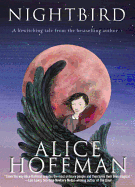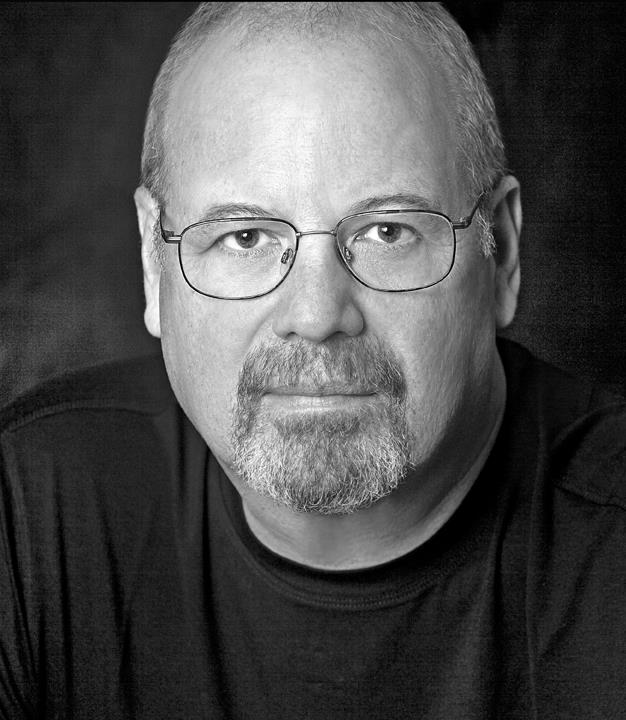 John Clarkson spent many years in the New York advertising industry as a copywriter, running his own agency and as a private consultant. He is the author of six novels, including And Justice for One and Among Thieves (Minotaur, February 3, 2015). He lives in Brooklyn, N.Y.
John Clarkson spent many years in the New York advertising industry as a copywriter, running his own agency and as a private consultant. He is the author of six novels, including And Justice for One and Among Thieves (Minotaur, February 3, 2015). He lives in Brooklyn, N.Y.
On your nightstand now:
I'm just finishing The NYPD Tapes: A Shocking Story of Cops, Cover-ups, and Courage by Graham A. Rayman. It's very meticulously done, and it's important. I'm always interested in cop stuff, particularly the NYPD--[it] often plays a part in my books, and if I can learn anything new, I take the opportunity. The book represents an enormous amount of fair and objective journalism that will allow someone like me interested in this subject to connect a great many dots.
The current read is All the Light We Cannot See by Anthony Doerr. I enjoy Doerr's rhythms and pace. A surprise might be the other book I'm dipping into right now: The Thin Man by Dashiell Hammett. For me, Hammett is a source or a touchstone for the American hero archetype. I absorbed the entire gestalt of the Continental Op character and Sam Spade. However, I'm having a very hard time relating to Nick Charles, less so with Nora. I'm also finding the dialogue jumbled and overdone. I already know I'll set aside The Thin Man. This happens to me often; I'm impatient with many books, and very rarely will I slog through a book just to finish it if I find it flawed.
Lastly, a book on the nightstand I've started: Judith Scott--Bound Unbound. I read sections of it as I can. Judith Scott is an artist, and I bought the book after seeing an exhibition of her work at the Brooklyn Museum of Art. She creates striking sculptures by binding up found objects in an assortment of materials (twine, fabrics, colored yarn, etc.) until they became completely idiosyncratic. She was born with Down syndrome and institutionalized for [more than 30 years], and because she was also deaf and couldn't speak, she was treated as if she were profoundly disabled. However, once she was put into the right environment and given a chance to work, she produced an unstoppable flow of art for 18 years until her death in 2005. Judith and her work bring up a raft of issues: gender, disability, preconceptions of art, societal norms, human ingenuity, environments to which we are exposed, the need to fulfill creative potential. Among other things, her story and work also help shatter any complacency or so-called writer's block.
Favorite book when you were a child:
As a very young child I remember Misty of Chincoteague by Marguerite Henry--it opened me up to adventure stories--but at some point I stumbled upon a series written by Duane Decker about a fictional baseball team called the Blue Sox. I grew up in Chicago with the White Sox, so maybe that's what got my attention. The first one I read was Fast Man on a Pivot. As I recall, there were books in the series for each position. I don't know if I ever read through the whole team, but it catapulted me into reading and the whole series thing.
From there it was C.S. Forester's Horatio Hornblower series, living through his rise from lowly midshipmen to admiral of the fleet, then P.C. Wren's Beau Geste series, and it never stopped. I'll still go into a bookstore and dive into a series. I remember standing in the cashier line at BookCourt with three of the George R.R. Martin books, paying something like $28 and thinking to myself, "Jeezus, what a bargain. I'm holding 30 or 40 hours of entertainment in my hand for 28 bucks."
Every reader out there knows what I'm talking about--the joy of finding a good writer and then you're off and running for months or years. What could be better? For me, it started with Fast Man on a Pivot.
Your top five authors:
This is tough because it can shift depending on the criteria. But I'll set the criteria and give you two lists.
List One: Important to me/big influence (not necessarily in rank order).
John Steinbeck: The Grapes of Wrath is simply unbeatable/indispensable. Also, his Journal of a Novel: The East of Eden Letters were a major influence on me as a writer in terms of craft. Tom Wolfe: A game changer. The chronicler of the American scene and the founder of New Journalism with The Electric Kool-Aid Acid Test and The Kandy-Kolored Tangerine-Flake Streamline Baby. A master novelist (The Bonfire of the Vanities, The Right Stuff, etc.). Jack Kerouac: Nothing was the same after On the Road. William Styron: Sophie's Choice was indelible. J.D. Salinger: The Catcher in the Rye allowed all adolescents to break through. And I can't resist padding this list with Ken Kesey and Ian Fleming.
List Two: Contemporary authors whose books I will always buy without hesitation. I don't have to read the flap copy or blurbs, I just buy them.
Stephen King, Lee Child, Robert Crais, John le Carré and Elmore Leonard.
Book you've faked reading:
Honestly, can't remember faking that I've read a book. Maybe Moby-Dick? I'm pretty sure I read it straight through in college, but when I tried to read it again, even skimming over all the stuff about whaling, I never finished it. Perhaps I don't hang with a very sophisticated crowd and don't need to fake.
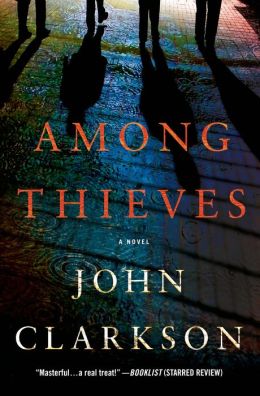 Book you're an evangelist for:
Book you're an evangelist for:
John Clarkson's Among Thieves.
Book you've bought for the cover:
A Pickpocket's Tale by Timothy Gilfoyle, which features the haunting face of George Appo, a 19th-century pickpocket and thief.
Favorite line from a book:
I always like James Crumley's opening line for The Last Good Kiss: "When I finally caught up with Abraham Trahearne, he was drinking beer with an alcoholic bulldog named Fireball Roberts in a ramshackle joint just outside of Sonoma, California, drinking the heart right out of a fine spring afternoon." Mostly I like the last phrase--"drinking the heart right out of a fine spring afternoon."
Book you most want to read again for the first time:
To Kill a Mockingbird by Harper Lee.
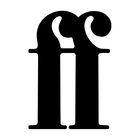 U.K. publisher Faber & Faber has terminated its partnership with Farrar, Straus & Giroux after 17 years, and will be announcing plans for the U.S. market shortly. The Bookseller reported that "all the titles published by Faber and Faber Inc., and those under contract for release, will now become FSG titles, moving to the FSG colophon over the next 18 months." Mitzi Angel will continue to acquire as v-p and executive editor at FSG.
U.K. publisher Faber & Faber has terminated its partnership with Farrar, Straus & Giroux after 17 years, and will be announcing plans for the U.S. market shortly. The Bookseller reported that "all the titles published by Faber and Faber Inc., and those under contract for release, will now become FSG titles, moving to the FSG colophon over the next 18 months." Mitzi Angel will continue to acquire as v-p and executive editor at FSG.










 Amazon has responded to the FAA's
Amazon has responded to the FAA's
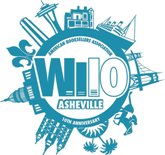 At the American Booksellers Association members town hall meeting last Tuesday, during Winter Institute 10 in Asheville, N.C., the single biggest topic of the meeting was what indies can do about the rising tide of minimum wage in many parts of the country (which was reported on
At the American Booksellers Association members town hall meeting last Tuesday, during Winter Institute 10 in Asheville, N.C., the single biggest topic of the meeting was what indies can do about the rising tide of minimum wage in many parts of the country (which was reported on 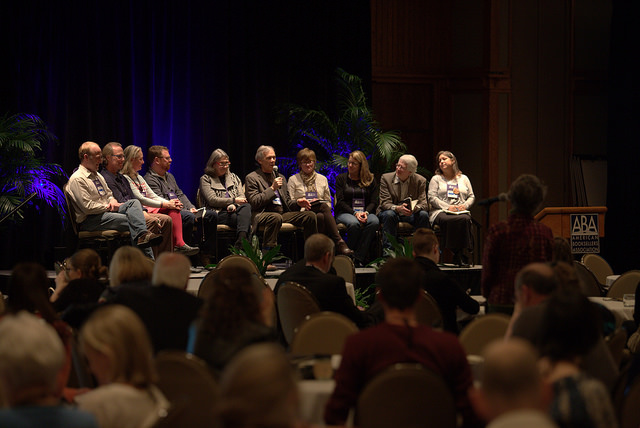

 Four independent bookshops in the U.K.are on the shortlist of 20 businesses in the
Four independent bookshops in the U.K.are on the shortlist of 20 businesses in the 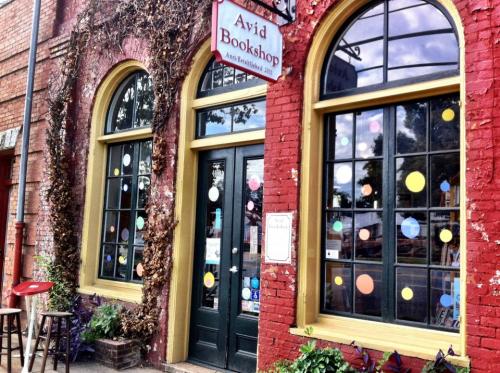 Flagpole magazine's Barbette Houser
Flagpole magazine's Barbette Houser 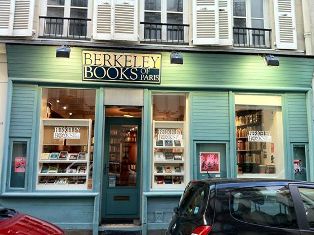 From the Facebook page of French bookseller
From the Facebook page of French bookseller 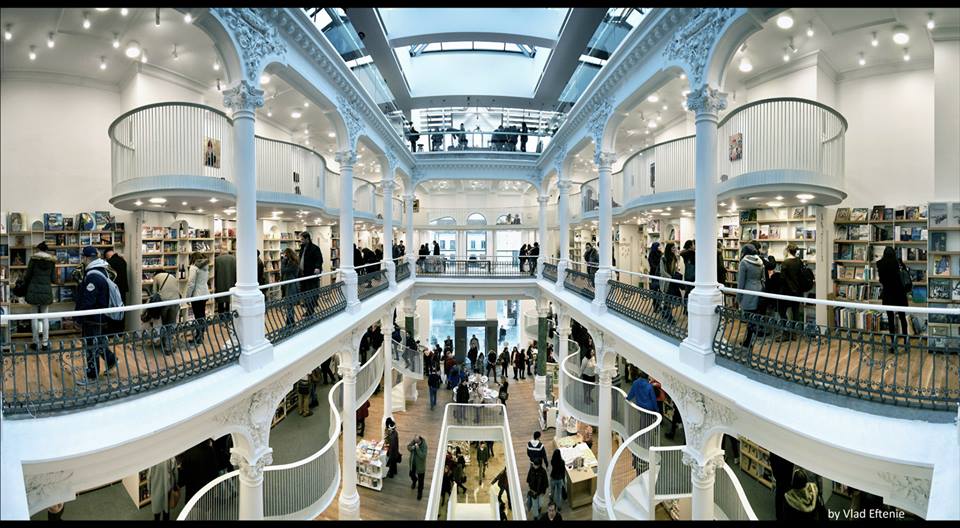 New bookstore
New bookstore 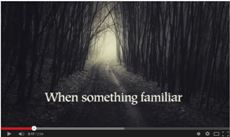 The Uncanny Reader: Stories from the Shadows
The Uncanny Reader: Stories from the Shadows John Clarkson spent many years in the New York advertising industry as a copywriter, running his own agency and as a private consultant. He is the author of six novels, including And Justice for One and Among Thieves (Minotaur, February 3, 2015). He lives in Brooklyn, N.Y.
John Clarkson spent many years in the New York advertising industry as a copywriter, running his own agency and as a private consultant. He is the author of six novels, including And Justice for One and Among Thieves (Minotaur, February 3, 2015). He lives in Brooklyn, N.Y. Book you're an evangelist for:
Book you're an evangelist for: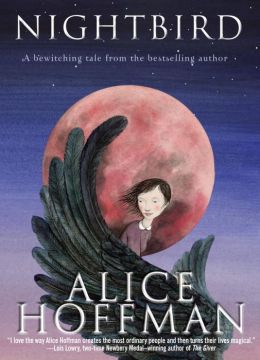 Alice Hoffman has a gift for melding magic and realism in a way that makes nearly anything seem possible. As with her Green Angel, the author here explores themes of nature, rebirth and renewal.
Alice Hoffman has a gift for melding magic and realism in a way that makes nearly anything seem possible. As with her Green Angel, the author here explores themes of nature, rebirth and renewal.